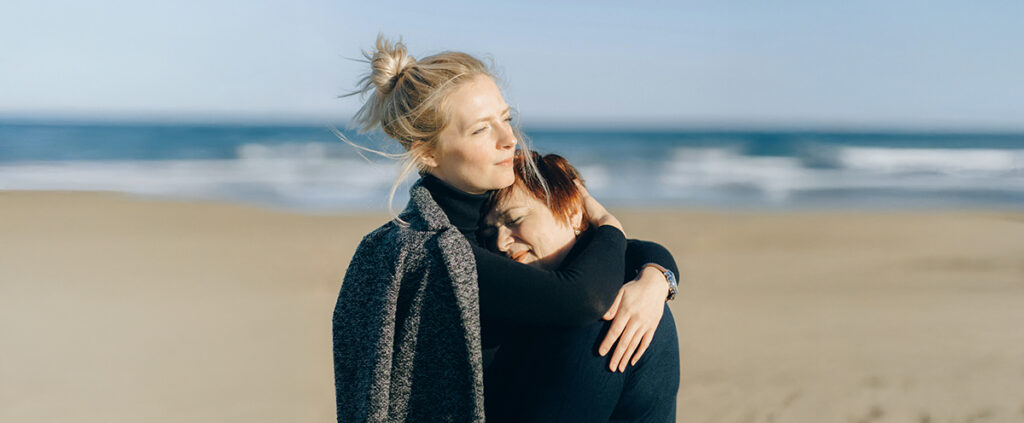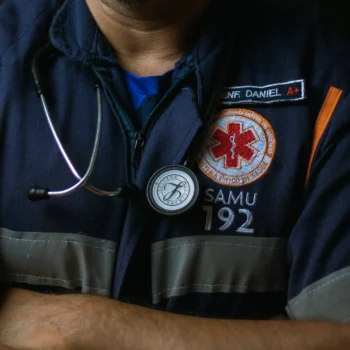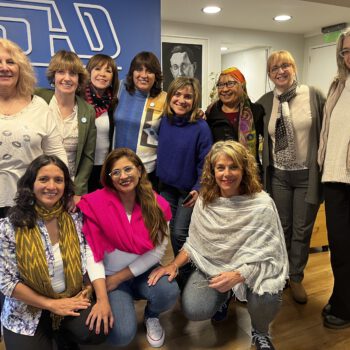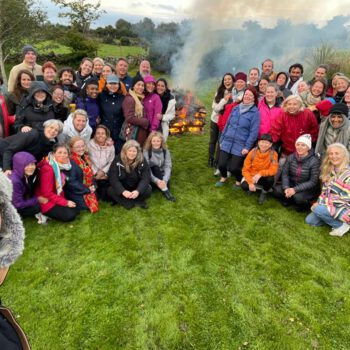Caring for aging parents is a journey that most of us aren’t prepared for. We know in theory that one day our parents might need our help but when that day arrives, it doesn’t feel like a gradual transition, it feels like a tidal wave. I’ve been there. I’ve lived it. I’ve learned that it’s not just about caring for them—it’s about not losing yourself in the process.
From my earliest memories, I remember watching my parents care for their parents. I don’t recall a time when that wasn’t happening. I remember hearing stories of them stepping up even before I was born. Being the youngest grandchild on both sides of my family—born to the oldest child of seven on my dad’s side and the oldest girl of nine on my mom’s—it was always a part of our family fabric. My grandparents were always old in my eyes; always needing care, and my parents always showed up.

Witnessing this care was beautiful, but it was also costly to their health and wellbeing. I remember watching my mom cry on my sister’s shoulder in the laundry room when her mom was diagnosed with Alzheimer’s. I remember my dad feeding his dad when he could no longer do it himself. I remember their fierce protectiveness—their Mother Bear and Alpha Wolf energy—when their parents weren’t being cared for properly. I recall their heartache when their parents declined, both physically and mentally, and when they eventually passed.
My parents were the strongest people I knew, and I felt so grateful I would never have to carry that burden.
Until I did.
It started quietly—an odd comment from my dad about my mom’s memory or his own ongoing health issues. “She’s just like her mother,” he’d say, alluding to her memory slipping. Doctor appointments piled up. My siblings and I helped them transition to a smaller home, and then eventually to an assisted living facility.
The transition wasn’t smooth.
Two days before the move, I got a call from my dad. His voice was full of anger and hurt. He told me they weren’t moving, that he’d worked too hard to lose his home. To him, losing his home was equivalent as losing and therefore his role as the Alpha Male.
He asked if I knew what I was doing to him, what I was taking away. I felt guilt, shame, and heartbreak. I felt like a child again, who lost her parent’s trust. But we knew the move was necessary.
It was my adult self facing off with my inner child.
In many families, the responsibility of caring for aging parents falls on the children. It’s a mix of love, duty, responsibility, and vulnerability. For me, it was also a balancing act—trying to care for them while keeping my own life afloat. I had young children, a career, and a household to manage. I learned from my mom how to prioritize others above myself.
The disconnection from my own needs showed up as burn out, headaches, anxiety, back pain, and sleepless nights.
Gabor Maté talks about compassion fatigue, and he says there is no such thing. “Empathy and compassion are our nature. Why would we get tired of our nature?” We become exhausted because we lack compassion for ourselves. If we had it, we would also have boundaries and a connection to self. We would include ourselves in our circle of care.
It took time for me to recognize how my beliefs about self-care were shaped by my family system. Letting those beliefs surface was not easy. I did it with the help of my family, my friends, my counselor, and my Compassionate Inquiry therapist.
Letting go of the impossible expectation that I could keep my parents well became a part of my self-care.
I had to learn that it wasn’t my responsibility to heal them.
That may sound obvious, but I carried this responsibility deep within me. I would drop everything to take them to appointments or respond to calls from their care home. I thought I had to keep them healthy and alive. That belief didn’t begin when I started caring after them—it was rooted in something much older.
As I started to shift my perspective and began to transform these beliefs, I experienced something profound. I was able to be present with them as they prepared to pass.
And because of that shift, I didn’t miss the depth of those moments.
Without it, I might have been so overwhelmed with perceived duty that I would have missed the beauty hidden in heartache.
It was a gift to witness this stage of their lives instead of trying to “fix” something that wasn’t broken. I recognize that I was on a similar path to my parents, learning at a young age how to assume the role of the caretaker.
That past lived in my present, showing up as unconscious programming. But I was also born at a time when I could take a different path. As I continue to learn the balance of caring for myself and others, I am more aware when I’m overdrawing from my own emotional bank without making any deposits.
And when I do, I try to return to the reminder: I am also someone worth caring for.



